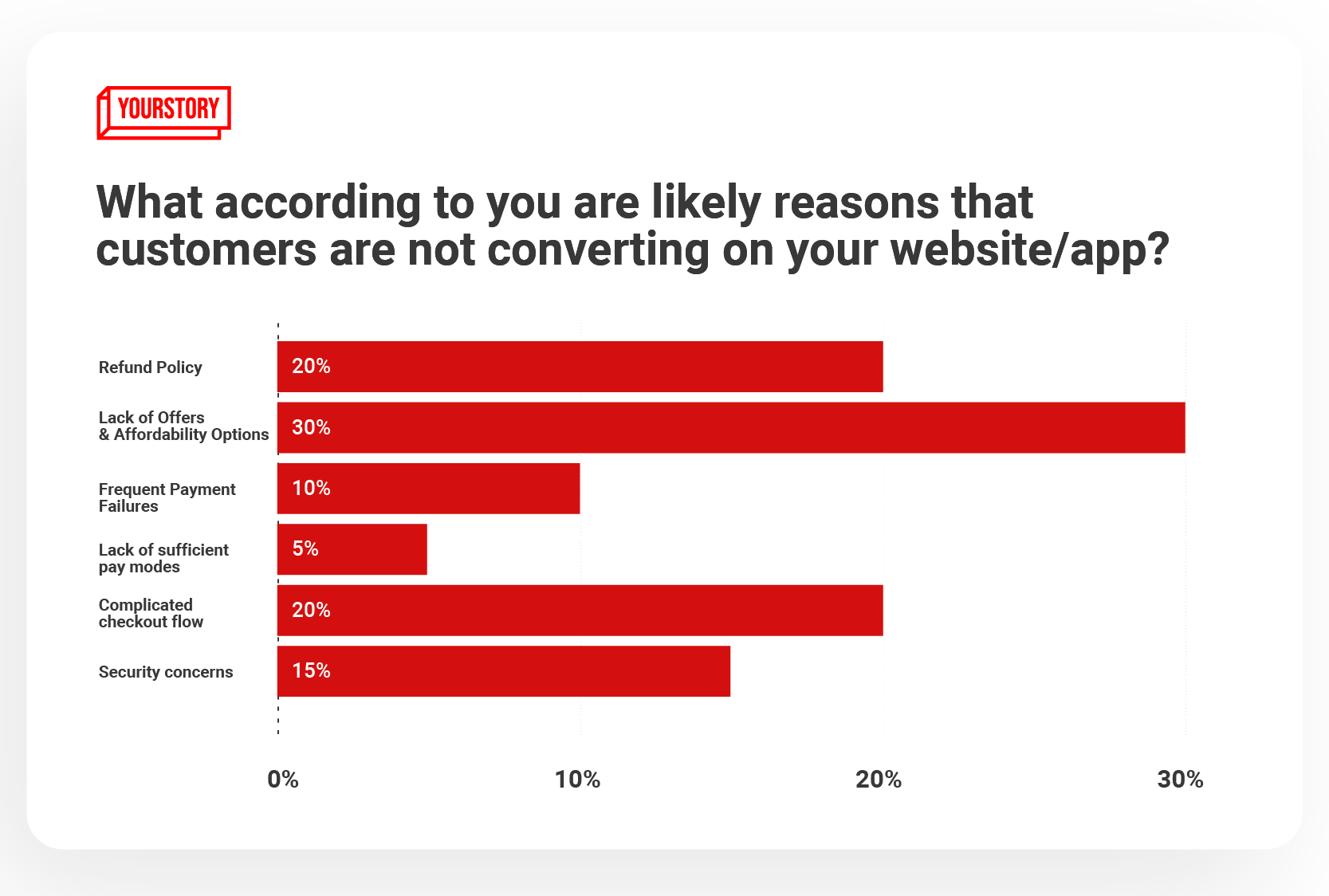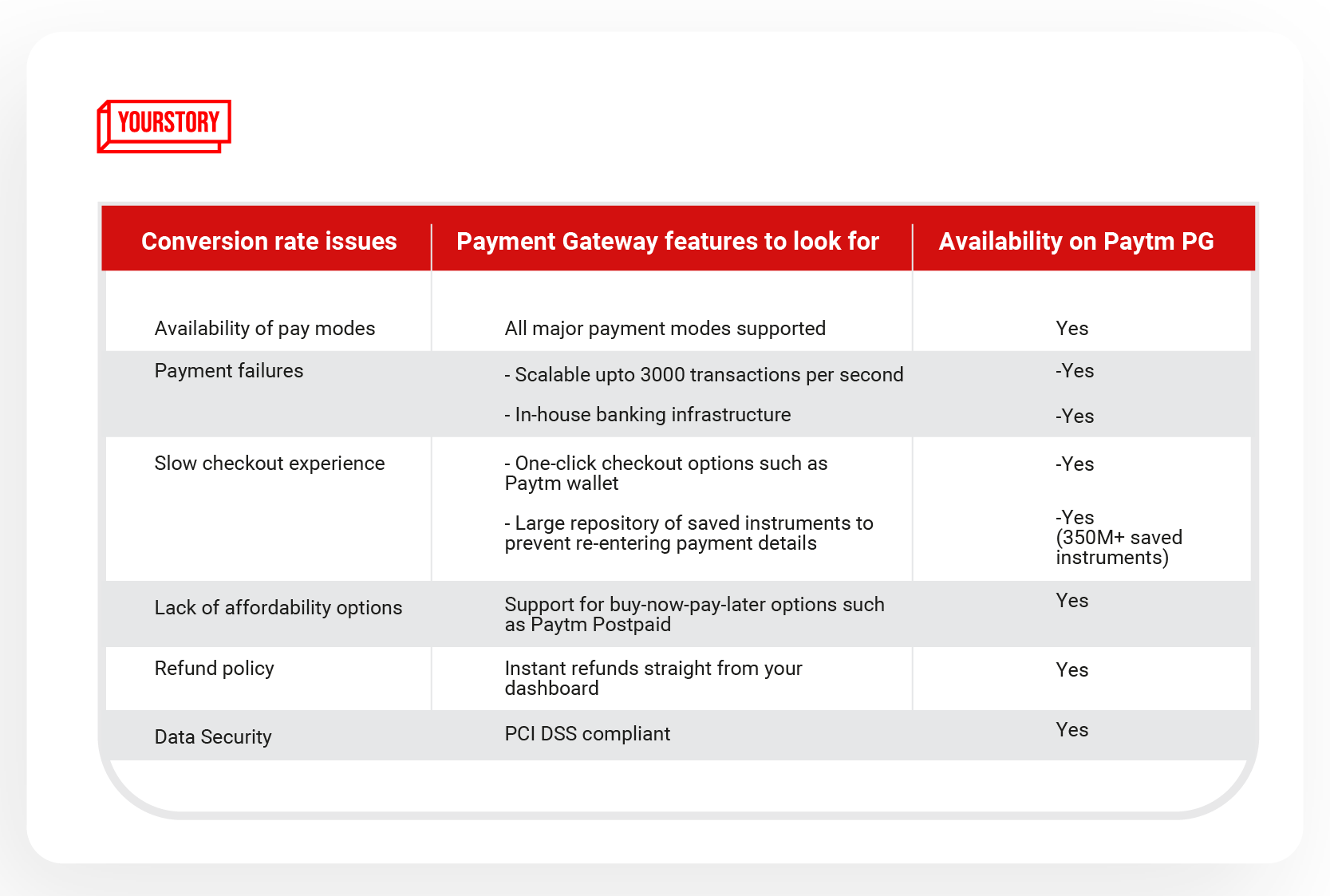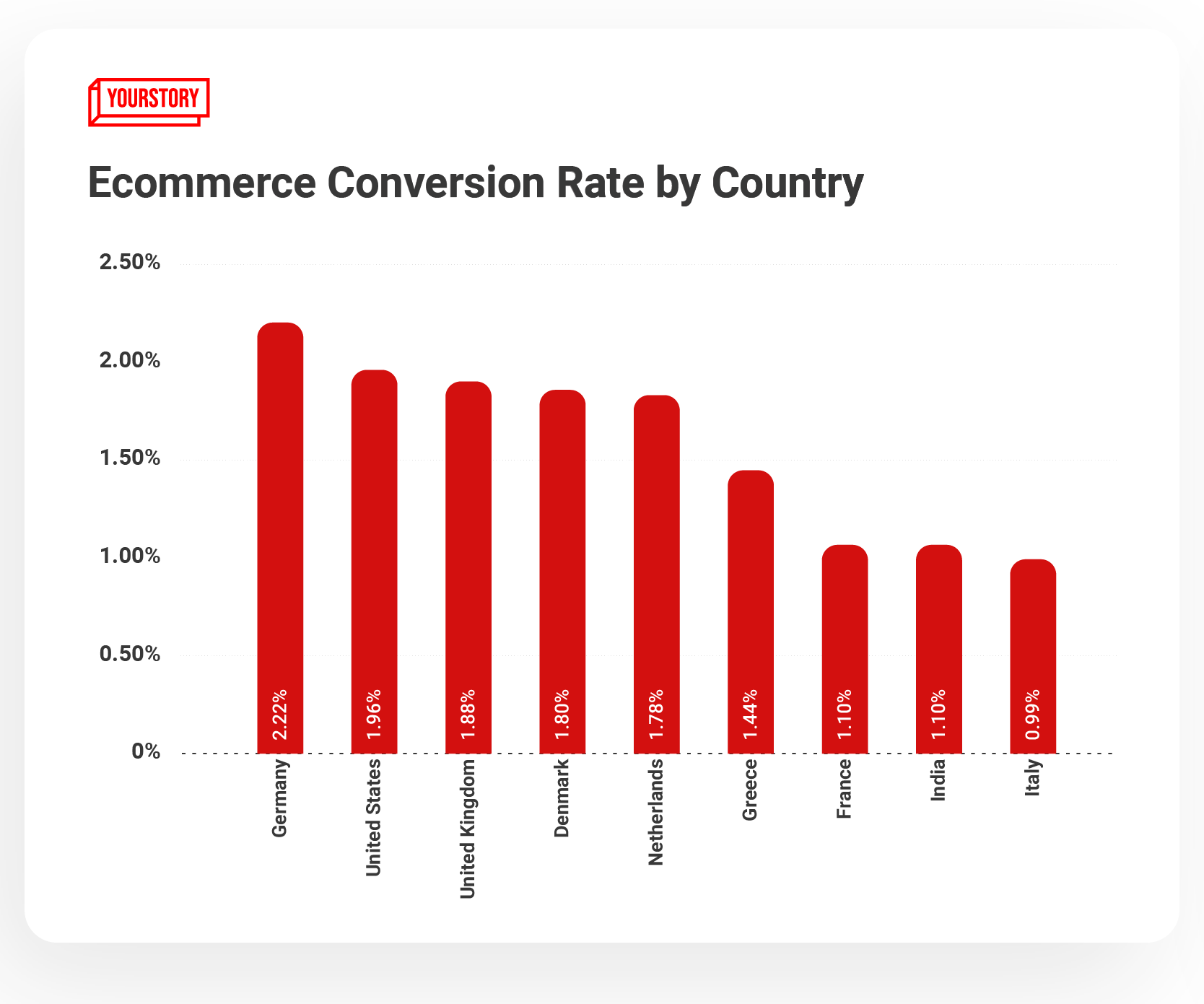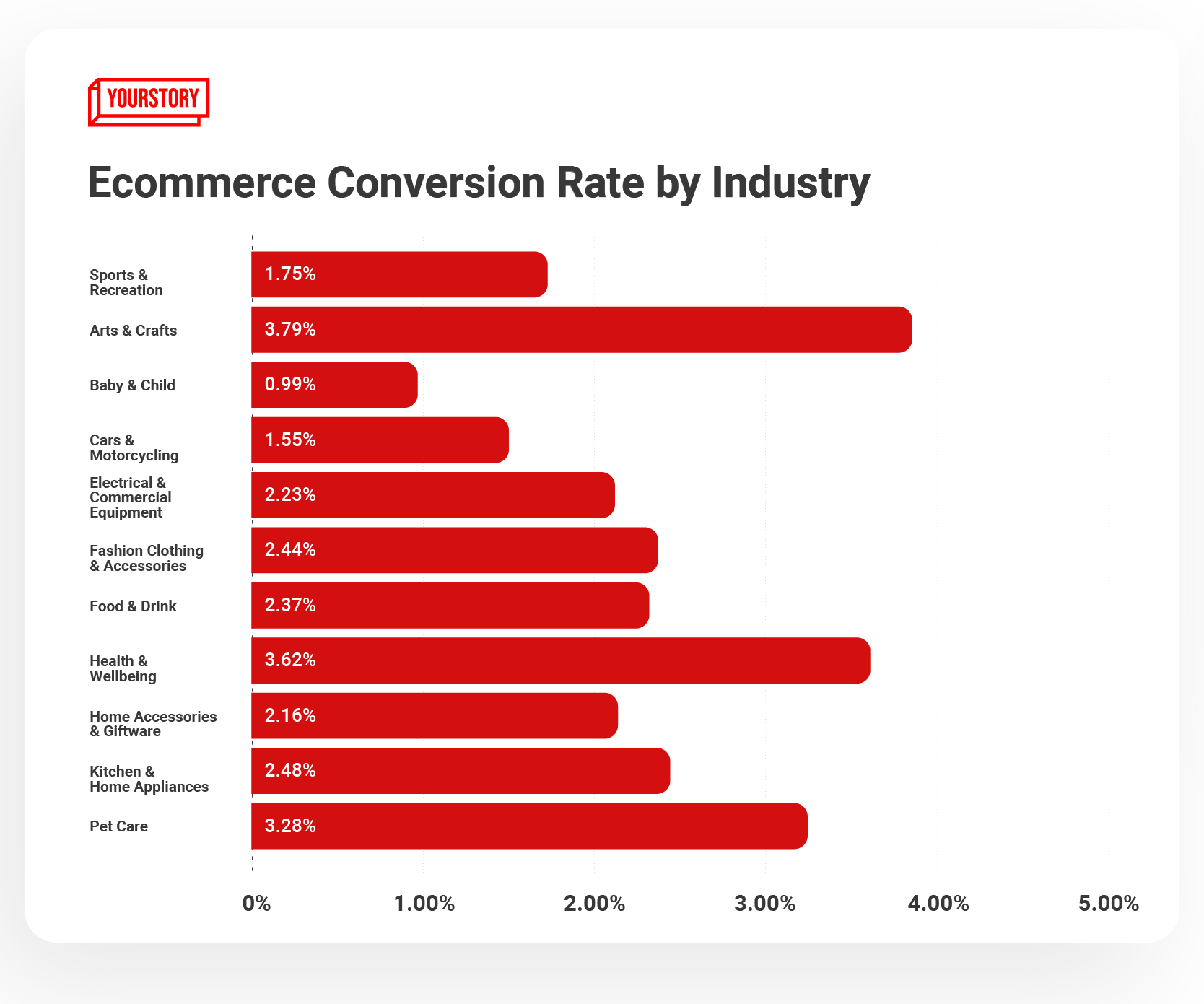Startups working in the online space rely heavily on website traffic to engage more customers. As an e-commerce business, growth is dependent on how much of that traffic converts to customers. Therefore, it is imperative to have a strategy that works towards improving the customer conversion rate.
Simply put, the e-commerce conversion rate is the ratio of transactions to sessions expressed in the form of a percentage. For instance, a ratio of one transaction against every 10 sessions would make for an e-commerce conversion rate of 10 percent.
Along with other crucial factors, conversion rate acts as an important metric to measure the performance of your online store. The higher the conversion rate, the better the customer value proposition.
Ecommerce Conversion rates by Country:
E-commerce Conversion rates by Industry
The above data will give you a sense of benchmarks in terms of conversion rates. Although conversion rate benchmarks vary by country and industry, the above data can give you a sense of where your business stands. If below benchmarks, don’t worry, this article might help. If you are above benchmarks, kudos, but read on, you may still find this interesting.
What leads to low conversion rates?
For each startup, online conversion rate benchmarks may vary based on several factors. According to a survey of over 1,600 Shopify stores conducted by Littledata, if your brand’s conversion rate is anything more than 4 percent, it puts you within the top 20 percent of Shopify stores, while anything less than 0.8 percent puts you in the bottom 20 percent.
To improve customer conversion rates, startups must identify the reasons why customers choose to abandon the shopping experience. YourStory on its platform conducted a poll that asked the startup community to cite the reason for low customer conversion rate. The results are shown below:

While attempting to address some of the conversion issues highlighted in the poll results, brands today may invest in a lot of strategising and buying CRO tools. From increasing marketing spends to running discounts, a whole lot of effort is put into trying to increase the customer conversion rate. While all this is important, choosing the right payment gateway can help startups solve quite a few of their conversion woes. Here is how:
1. Preventing Payment failures:
A customer centric payment gateway will prevent payment failures by providing a solid in-house banking infrastructure. It ensures that your payment goes through faster, thereby increasing the chance of success. Another crucial measurable aspect to consider for startups is transaction per second (TPS). It is the number of transactions a payment gateway can support per second. The higher the TPS, the better the payment gateway’s efficiency.
2. Data security:
A lot of consumers are still sceptical about trusting an online store with crucial payments data. The payment gateway you choose must be PCI DSS certified. This RBI recognised certification ensures the security of your customers. You can advertise this on your checkout page to assure your customers about your website or app’s security standards.
3. Faster checkout:
As per the poll results earlier, complicated checkout flows was one of the main reasons for low conversion rates. Consumers of today are looking at a faster checkout experience. Choose a payment gateway that offers one-click checkout options like wallets and also has a large repository of saved cards. Chances of conversion increase when customers don’t have to enter their card or account details every time they make a payment.
4. Offers & affordability options:
Keeping up with the emerging trends, payment gateways allow customers to use Buy now Pay later options to make products more affordable. Such credit facilities are known to increase conversion rates for online startups.
5. Strengthen your refund policy:
A dependable refund policy is a must for consumers. Choose a payment gateway that gives you a single dashboard/access point from which you can seamlessly initiate refunds. This will allow you to build a robust refund policy that your customers can trust.
6. Availability of all payment modes:
A good payment gateway offers your customer multiple modes of payment to choose from. A customer is more likely to make a purchase if given the option for a preferable mode of payment.
How Paytm Payment Gateway enhances payments experience
Leading payments solution provider Paytm PG is still a preferred choice for most online startups and probably the best payment gateway for CRO. The table below maps Paytm PG’s offerings that help boost conversion rates



